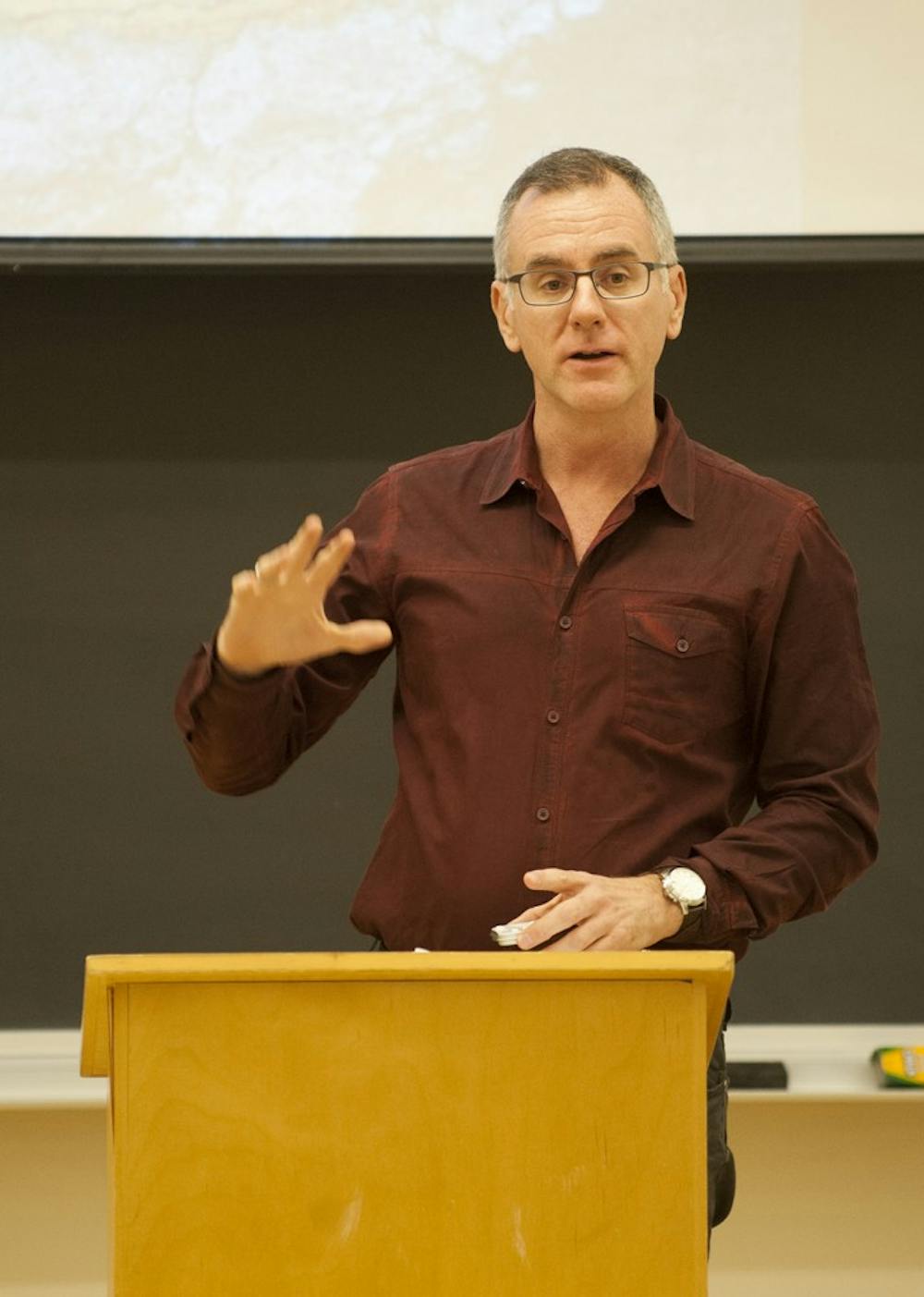To conclude Disability Acceptance Week at the University, keynote speaker Robert McRuer gave a lecture in Minor Hall Friday.
McRuer, who serves as English Department chair at George Washington University, discussed how development and gentrification include some populations while displacing others.
Through photographer Livia Radwanski’s pictures from the project Mérida90, McRuer analyzed “crip images.” These images illustrate the displacement and poverty in a developing portion of Mexico City, Colonia Roma, an area west of the district’s center. The photographs came from one building in particular, declared unsafe to live in, in which disabled persons have taken up residence.
“‘Crip’ is an analytic term that allows space for thinking about these projects,” McRuer said. “In my presentation, crip images were images that are not immediately recognizable as ‘disabled’ but that can nonetheless be interpreted through the lens of disability theory and history. ‘Crip’ allows for thinking about bodies and minds that are excluded, marginalized [and] displaced.”
McRuer focused on the fact that in places like Mexico and the United Kingdom, displaced populations face poverty and suffering.
“Displacements are always crip displacements in several senses,” he said. “Unruly bodies are moved elsewhere, evicted, relocated.”
Under the United Kingdom’s “bedroom tax,” rented households with “too much” or “excess” space must pay a tax. McRuer said two-thirds of houses affected are those of people with disabilities, severely limiting affordable housing for the disabled. McRuer said the tax eliminates 14 pounds per week in housing benefits for those who pay it, many of whom are already low income.
McRuer criticized the United Kingdom for instituting such laws while publicly putting forward a message of inclusion in other parts of the world.
The United Kingdom joined forces with Mexico to institute a campaign called “Mexico City for Everyone.” This program promoted disabled-accessible cities, highlighting Mexico City. McRuer said the event in Mexico “obscured the climate change of disability change on the other side of the Atlantic Ocean.”







